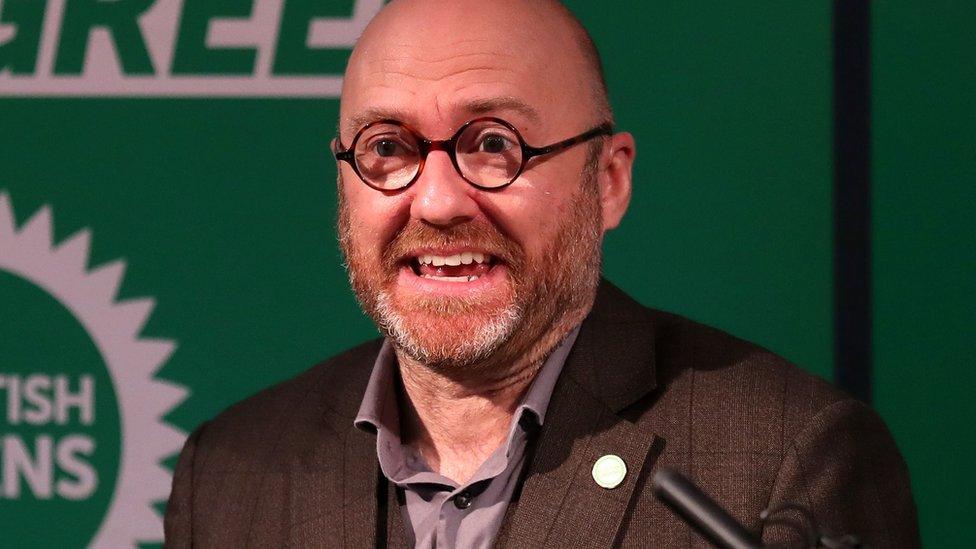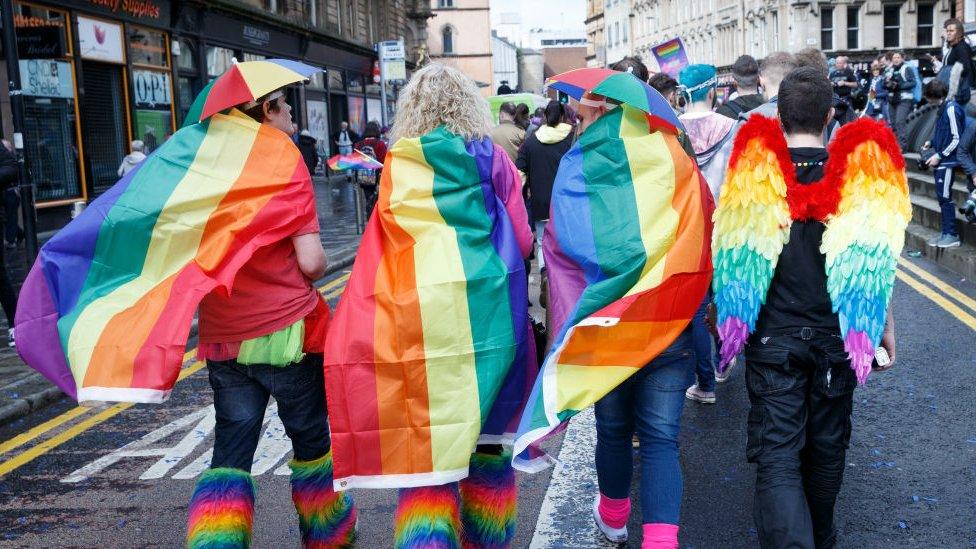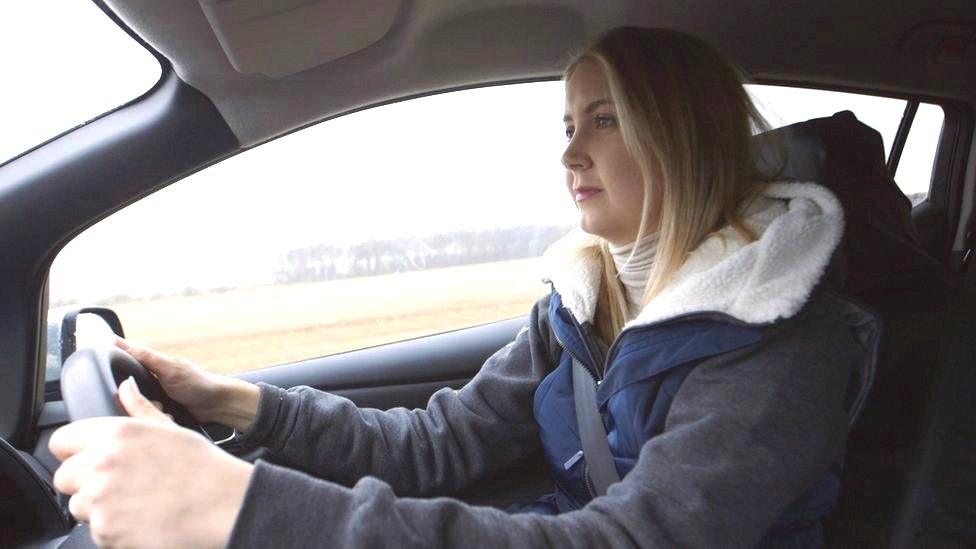Scottish election 2021: Greens say focus should be climate change
- Published

Patrick Harvie said within nine years the effects of climate change will be irreversible
Scottish Greens co-leader Patrick Harvie has said the focus of the election must be climate change in order to cut Scotland's emissions.
He claimed other parties were "sleepwalking" to climate breakdown by supporting fossil fuel exploration.
The Scottish government has a legally-binding net-zero target for 2045.
But the Scottish Greens said without further action, global warming is on track to rise by more than double the target agreed in the Paris agreement.
The Scottish Lib Dems confirmed on Tuesday they would also be campaigning on taking action on climate change.
'Irreversible' impact
MSPs passed a bill in 2019 which put the net-zero target - the aim of having all emissions offset by 2045 - in law.
The plans were overwhelmingly backed by MSPs, although the Scottish Greens abstained in the vote having called for more ambitious milestones to be set along the way.
The party said the plans failed to commit to moving away from fossil fuels and were "heavily reliant on untested technologies such as hydrogen and carbon capture and storage to keep the oil and gas industry running at maximum levels of extraction".
On Tuesday, Mr Harvie said that within nine years the climate crisis will be "irreversible" and that Scotland "can't afford to continue this complacency".
He said: "The SNP are stuck in a repeating loop, setting eye-catching targets and missing them; sticking with their discredited climate plan while still supporting the fossil fuel industry.
"And of course, they are also united with Labour, the Tories and the Lib Dems on road and aviation expansion too. They are sleepwalking this country to disaster.
"Only the Scottish Greens have the solutions to the climate crisis, and have announced green recovery investment plans that would slash emissions and create over 100,000 jobs."
Mr Harvie added: "This cannot be fixed by the behaviour of individuals or left to market forces.
"We need state intervention to invest in renewable energy, integrated public transport, warm homes and restoring Scotland's natural environment. We need to vote like our future depends on it, because it does."

SCOTLAND'S ELECTION: THE BASICS
What elections are happening? On 6 May, people across Scotland will vote to elect 129 Members of the Scottish Parliament (MSPs). The party that wins the most seats will form the Scottish government. Find out more here.
What powers does the Scottish Parliament have? MSPs pass laws on most aspects of day-to-day life in Scotland, such as health, education and transport. They also have control over some taxes and welfare benefits. Defence, foreign policy and immigration are decided by the UK Parliament.
How do I vote? Anyone who lives in Scotland and is registered to vote is eligible, so long as they are aged 16 or over on the day of the election. You can register to vote online, external.

Elsewhere on the campaign trail, the Scottish Conservatives made an election pledge to repeal elements of the the controversial hate crime bill.
The legislation, passed earlier this month, consolidates existing law and extends protection for vulnerable groups with a new offence of "stirring up hatred".
It was backed by Scottish Labour, the Scottish Lib Dems and the Scottish Greens - albeit with some concerns - but the Conservatives said the bill gives "no defence to people for what they say in the privacy of their own homes".
The party also said they would seek to amend the law so that sex is one of the protected characteristics.
Scottish Conservatives justice spokesperson Liam Kerr said: "We are committed to repealing every single line that threatens free speech. We are on the side of the public, with nine out of 10 Scots cherishing free speech and recognising it as a fundamental cornerstone of our democracy."

The law aims to give protection for individuals around their sexuality and gender identity, among other protected characteristics
Meanwhile, the SNP said the interests of young Scots would be at the front and centre of their election campaign as Finance Secretary Kate Forbes outlined a number of policies.
These include raising the council tax eligibility age to 22, free university tuition and expanding concessionary travel to everyone under the age of 22.
Scottish Liberal Democrat Leader Willie Rennie unveiled his commitment that every candidate elected from his party would make the recovery from the pandemic their priority.
Scottish Labour leader Anas Sarwar spoke of his party's proposal to deliver rapid diagnostic centres as part of the NHS recovery plan.

POLICIES: Who should I vote for?
PODLITICAL: Updates from the campaign

Related topics
- Published11 March 2021

- Published18 November 2019

- Published29 March 2021
